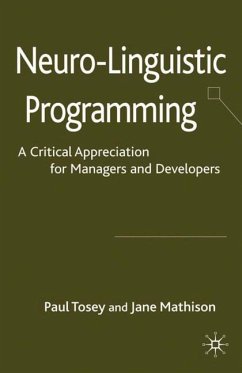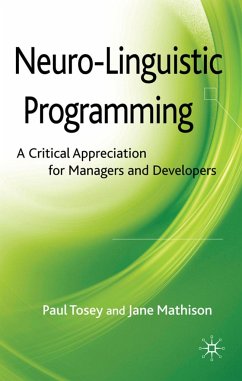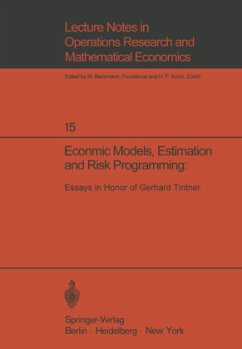
Versandkostenfrei!
Versandfertig in 6-10 Tagen

PAYBACK Punkte
19 °P sammeln!





Mixing economic theory and empirical analysis, this book tackles the economics and econometrics of codetermination, rooted in the German Mitbestimmung. The core themes are an examination of the theory and practice of co-determination at plant (work councils) and enterprise (worker directors) levels.
JOHN T. ADDISON is Hugh C. Lane Professor of Economic Theory at the University of South Carolina, USA, and is a research fellow at the Center for Labor and Employment Law at New York University and the University of Coimbra in Portugal.
Produktdetails
- Verlag: Palgrave Macmillan / Palgrave Macmillan US / Springer Palgrave Macmillan
- Artikelnr. des Verlages: 978-0-230-60609-8
- 2009
- Seitenzahl: 192
- Erscheinungstermin: 18. November 2009
- Englisch
- Abmessung: 222mm x 145mm x 16mm
- Gewicht: 370g
- ISBN-13: 9780230606098
- ISBN-10: 0230606091
- Artikelnr.: 23145846
Herstellerkennzeichnung
Palgrave Macmillan
Tiergartenstr. 17
69121 Heidelberg
ProductSafety@springernature.com
"With declines in private sector unionism in the US and much of Europe, attention has turned to alternative workplace institutions that might substitute for or complement unions. A natural place to turn has been the German model of codetermination. John Addison provides a comprehensive and deft analysis of the economics literature on codetermination, which focuses on its effects on performance - productivity, wages, profits, investment, employment, training, and flexibility. Emphasizing recent work, Addison s concludes that these effects are varied, affected by situation, and for the most part modest - far removed from the simplistic caricatures that proponents and opponents might draw. For those interested in how changes in workplace
Mehr anzeigen
institutions and governance impact worker well-being and economic performance, Addison s analysis of the German experience is essential reading, albeit one that will tame the passions of both naIve proponents and opponents of enhanced worker participation." - Barry Hirsch, W.J. Usery Chair of the American Workplace and Prof. of Economics, Georgia State University, Atlanta, Georgia, USA
"The Economics of Codetermination is a truly masterful piece of scholarship that sums up decades of path-breaking empirical and theoretical research on workplace representation in Germany. It is also an outstanding example of how to combine quantitative and qualitative methods and integrate econometric and historical analysis. The book will for a longtime be referred to as the most authoritative work on a political-economic institution that is of great theoretical and practical interest far beyond the country in which it has originated." - Professor Wolfgang Streeck, Director, Max Planck Institute, Cologne, Germany
"John T. Addison's book gives excellent insight into the history, the socio-economic context, and the economic effects of the German system of codetermination. It is essential reading, not only for industrial relations scholars, but also for businesspeople investing in Germany: It will make them understand the very specific German tradition of participative industrial relations and help them make better use of its potential for setting up high performance businesses." - Renate Hornung-Draus, Managing Director, Confederation of German Employers, Berlin
"This text offers the reader a wide-ranging investigation of the economic consequences of worker involvement in their companies through works councils at plant level and worker directors at enterprise level. The twists and turns of the evolving research literature are ably recounted and help contextualize ongoing German controversies. The result is a balanced and influential treatment. The book is essential reading for students of labor economics and industrial relations." - Claus Schnabel, Professor of Labor Economics, University of Erlangen-Nuremberg, Germany
"This book tells you all the things you might want to know - and some things that you may never have expected to find out - about the theory and empirical evidence regarding works councils and co-determination in Germany. It is careful, considered, thoughtful, scholarly and moreover, weaves a nice narrative that draws the reader in. It s a romp through a sophisticated and important literature which teaches the reader much about important labour market institutions as well as the art and science of labour economics and econometrics. I suspect that no-one other than John Addison could have written it." - Alex Bryson, Senior Research Fellow, National Institute of Economic and Social Research
"The Economics of Codetermination is a truly masterful piece of scholarship that sums up decades of path-breaking empirical and theoretical research on workplace representation in Germany. It is also an outstanding example of how to combine quantitative and qualitative methods and integrate econometric and historical analysis. The book will for a longtime be referred to as the most authoritative work on a political-economic institution that is of great theoretical and practical interest far beyond the country in which it has originated." - Professor Wolfgang Streeck, Director, Max Planck Institute, Cologne, Germany
"John T. Addison's book gives excellent insight into the history, the socio-economic context, and the economic effects of the German system of codetermination. It is essential reading, not only for industrial relations scholars, but also for businesspeople investing in Germany: It will make them understand the very specific German tradition of participative industrial relations and help them make better use of its potential for setting up high performance businesses." - Renate Hornung-Draus, Managing Director, Confederation of German Employers, Berlin
"This text offers the reader a wide-ranging investigation of the economic consequences of worker involvement in their companies through works councils at plant level and worker directors at enterprise level. The twists and turns of the evolving research literature are ably recounted and help contextualize ongoing German controversies. The result is a balanced and influential treatment. The book is essential reading for students of labor economics and industrial relations." - Claus Schnabel, Professor of Labor Economics, University of Erlangen-Nuremberg, Germany
"This book tells you all the things you might want to know - and some things that you may never have expected to find out - about the theory and empirical evidence regarding works councils and co-determination in Germany. It is careful, considered, thoughtful, scholarly and moreover, weaves a nice narrative that draws the reader in. It s a romp through a sophisticated and important literature which teaches the reader much about important labour market institutions as well as the art and science of labour economics and econometrics. I suspect that no-one other than John Addison could have written it." - Alex Bryson, Senior Research Fellow, National Institute of Economic and Social Research
Schließen
Für dieses Produkt wurde noch keine Bewertung abgegeben. Wir würden uns sehr freuen, wenn du die erste Bewertung schreibst!
Eine Bewertung schreiben
Eine Bewertung schreiben
Andere Kunden interessierten sich für













